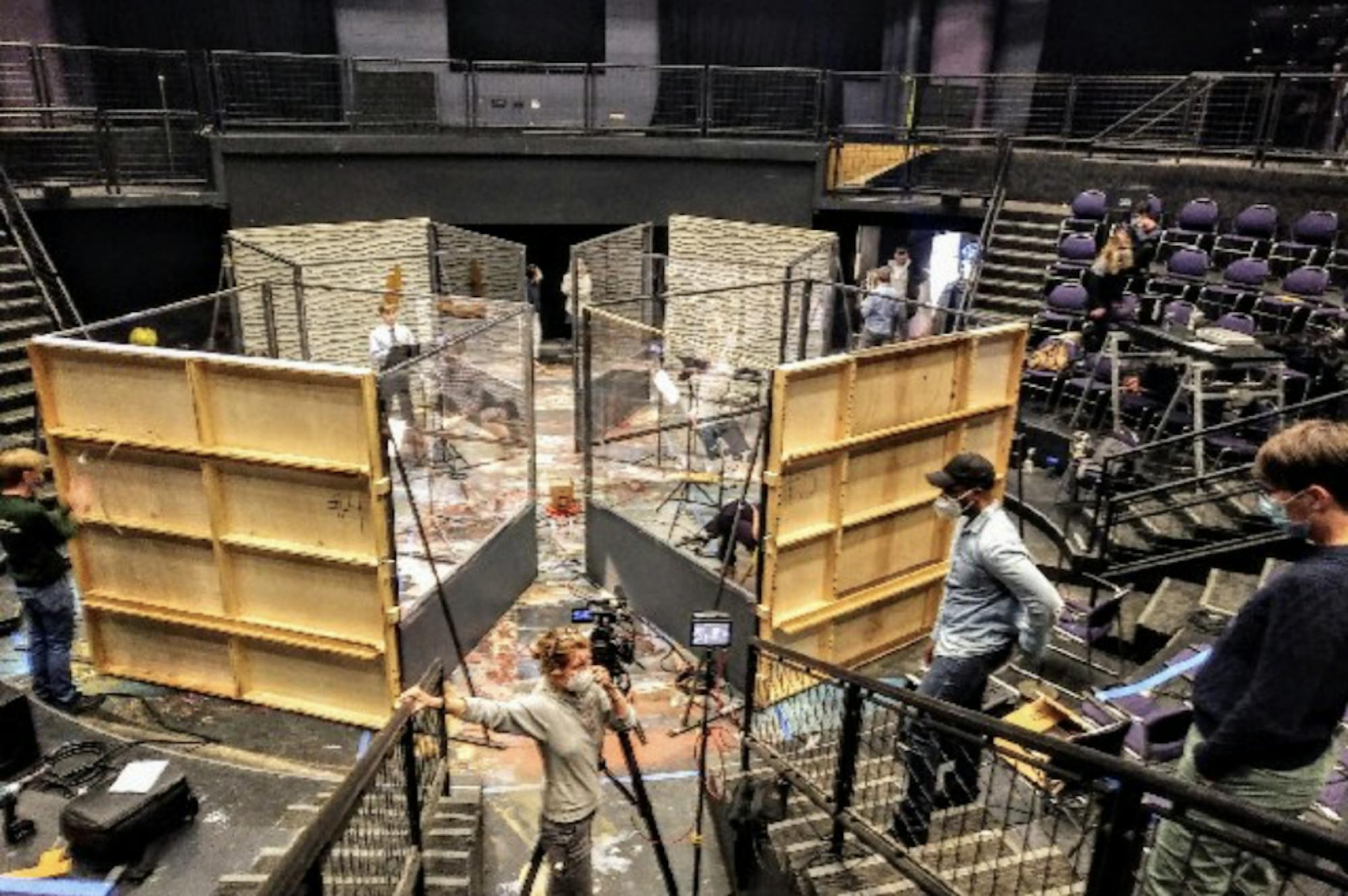Student theater groups and the Department of Theatre, Dance, and Performance Studies are gearing up for a busy season, from an 1830s Russian political comedy to a student-written jukebox musical.
Torn Ticket II
Torn Ticket II, a student-run musical theater group, put on its semesterly cabaret fundraiser, “Over the Rainbow,” on Feb. 19 over Zoom. The cabaret was its first performance of the semester. Each semester “Over the Rainbow” has a different theme, but due to the pandemic, Torn Ticket II did not produce a cabaret this past fall. However, this semester, Torn Ticket II decided to try a virtual format with the theme “Plot Twist,” where performers sang songs from musicals that featured unexpected turns of events.
“Over the Rainbow” also served as a fundraiser for the Arts Leaders of Color Emergency Fund, which supports artists and administrators who are Black, Indigenous and people of color and have been financially impacted by the pandemic. The show raised $420 for the fund.
Torn Ticket II has another production in the works. Sophomore Athena Nair wrote a jukebox musical titled “Is There Anybody Out There?,” based on A Great Big World’s 2014 album of the same name. The show follows Norah, a young South Asian Muslim American woman, and Bernardo, a young Mexican American man, pursuing their musical dreams and moving to New York. The plot aims to tell stories of those who have been historically underrepresented. “Is There Anybody Out There?” tells the story of a young, queer Muslim woman, a young, transgender man and parents with undocumented status.
Taite Pierson, president of Torn Ticket II, said the show is currently being workshopped, with help from the Office of Diversity and Inclusion, Counseling and Mental Health Services, some of the identity-based centers and the Muslim chaplaincy. The performance will be fully virtual for audiences and will show later this semester.
Pierson said university restrictions due to COVID-19 have posed difficulties for the group. For one, Torn Ticket II is only able to cast students who are off campus and able to sing alone in their own bedrooms for singing roles. But the pandemic has generated other issues for the troupe in terms of engagement and recruitment. Pierson said students’ energy for attending events virtually has decreased over the course of the pandemic.
“People have a very different capacity for being involved with things now,” Pierson said. “Theater used to be this release at the end of the day. We used to have rehearsals for hours, every day and over the weekend, and it was like ‘Oh, the end of day, you're going to have a Torn Ticket rehearsal and it's going to be fun.’ Now nobody really wants to get on another Zoom, and I think the general sense is the effort that it would take to like put on a Zoom musical with all the restrictions in place would not be necessarily worth it.”
Pierson added that the group is working to overcome these hurdles, but that without much help from the university, the burden has fallen on the organization’s leadership.
“We’re doing our best to keep some community, and keep at least the meetings as a place where people can come together … but it's been really hard,” Pierson said.
"The Government Inspector" (1836)
“The Government Inspector” will be the first faculty-directed play produced by the theater department this semester. Written by Nikolai Gogol, the play satirizes corruption in Imperial Russia. The play features classic themes of theatrical comedy, such as mistaken identity and absurdity.
Heather Nathans, chair of the theater department, said director Sheriden Thomas aims to heighten the show’s absurdity.
“The director has really played into the clown aspect of it and they've just gone crazy and over the top,” Nathans said. “I know they’re using puppets and quick costume changes, so they’re really leaning into the cartoonish aspect of it.”
The pandemic has placed restrictions on producing the show as usual. Some scenes require the presence of a large crowd on stage, which cannot happen due to social distancing guidelines. With the use of puppets to recreate the crowd and the department’s innovative “box system,” the show has adjusted.
Last semester, the department debuted a system during its Fall Festival of Plays, where they placed actors in self-contained plexiglass boxes. According to Nathans, the boxes allow actors to perform without masks while still in the company of their fellow cast members.
“The great thing is that all the actors using this [box system] get to be in the space with each other.” Nathans said. “It’s critical for comic timing but also just for acting, and seeing you react in real time.”
Production for “The Government Inspector” is currently underway, with the hopes of its virtual release by late March.
"Silent Sky" (2015)
After pitching the idea of producing “Silent Sky” for the last three or four years, Bridget Kathleen O’Leary finally has the opportunity to direct it. Written by Lauren Gunderson, America’s most produced playwright, the play centers on the life of Henrietta Leavitt, an astronomer who worked as a “computer” at the Harvard Observatory in the early 1900s. Though the play is set over a century ago, O’Leary says it still resonates today.
“We're having a lot of conversations about gender and ethnic parity, and representation on our stages and in our classroom,” O’Leary said. “It's a reimagination … of the original computers at the Harvard observatory — the women who were brought in to compute the stars and to map out what's happening. And Henrietta Leavitt, who's the main character in the play, was at the forefront of all of that, and a lot of people have not heard of her.”
Leavitt joined the Harvard Observatory in the early 1900s, tasked with measuring and cataloguing the brightness of stars. Though women were not allowed to operate the telescopes at the time, Leavitt nonetheless generated ground-breaking work in the field of astronomy. She is best known for her work on Cepheid variables, stars whose brightness fluctuates at regular intervals. Her studies allowed for Edwin Hubble to establish that the universe is expanding, a theory known as Hubble’s Law.
O’Leary said Leavitt lived and worked under stringent societal pressures, as well as amid the movement for women’s suffrage and economic equality.
“She was doing it also at a time when the expectation of women was that they were going to get married,” O’Leary said. “She's doing this, right in the heart of the women's movement … as women are trying to get the right to vote and the right to have their own career paths in their own life. It was frowned upon to have a woman, especially at her age, not be married and not start a family and have a job. That she was able to accomplish all of this during that time period is also significant.”
With no official date yet, “Silent Sky” will be available to audiences virtually later this semester.






